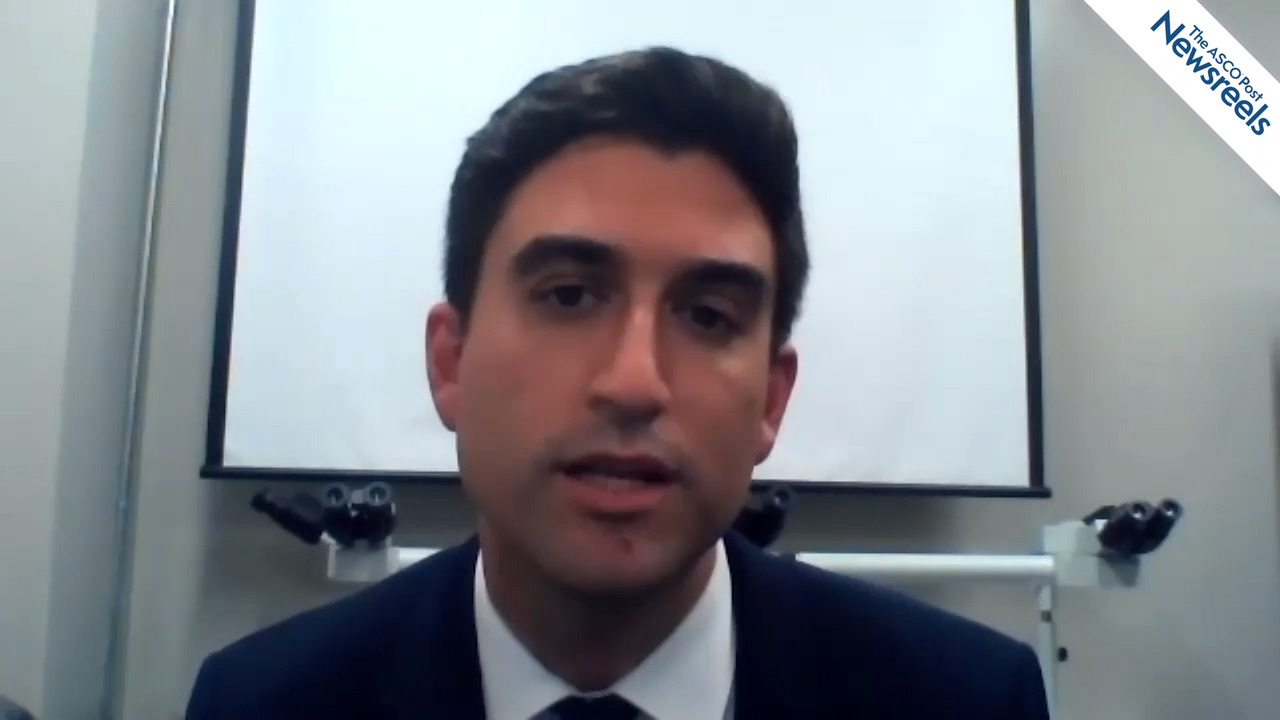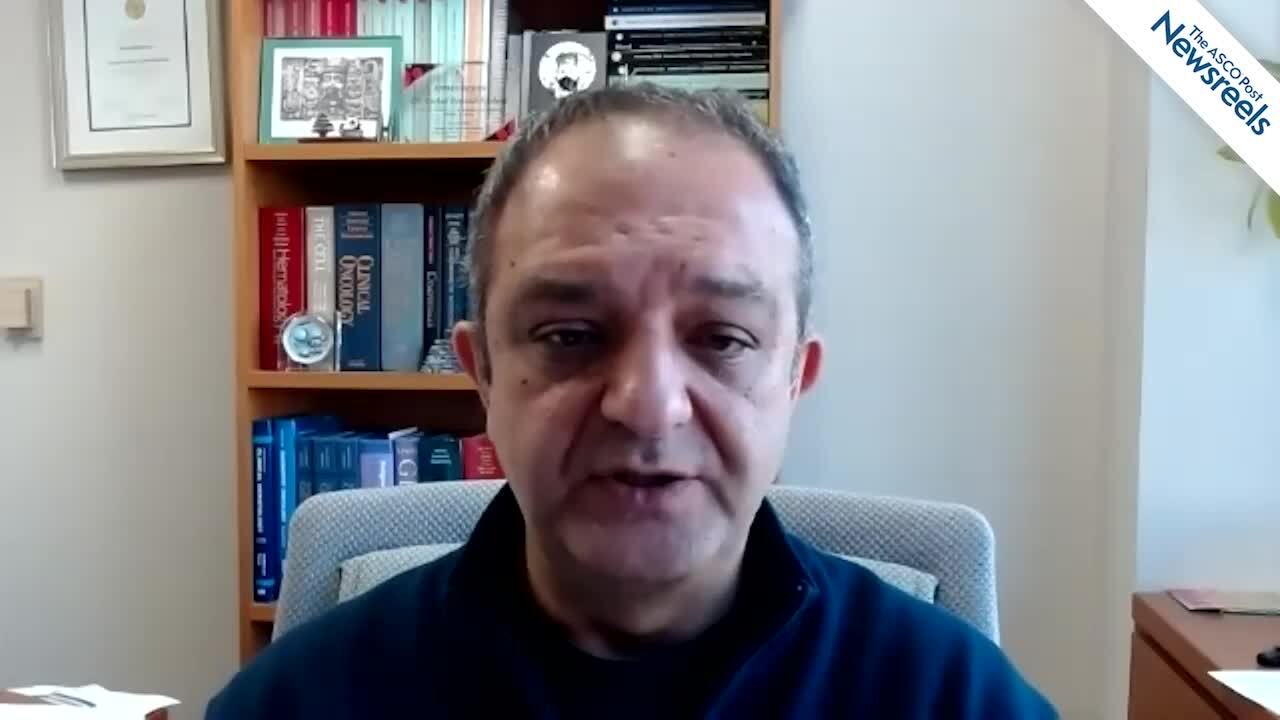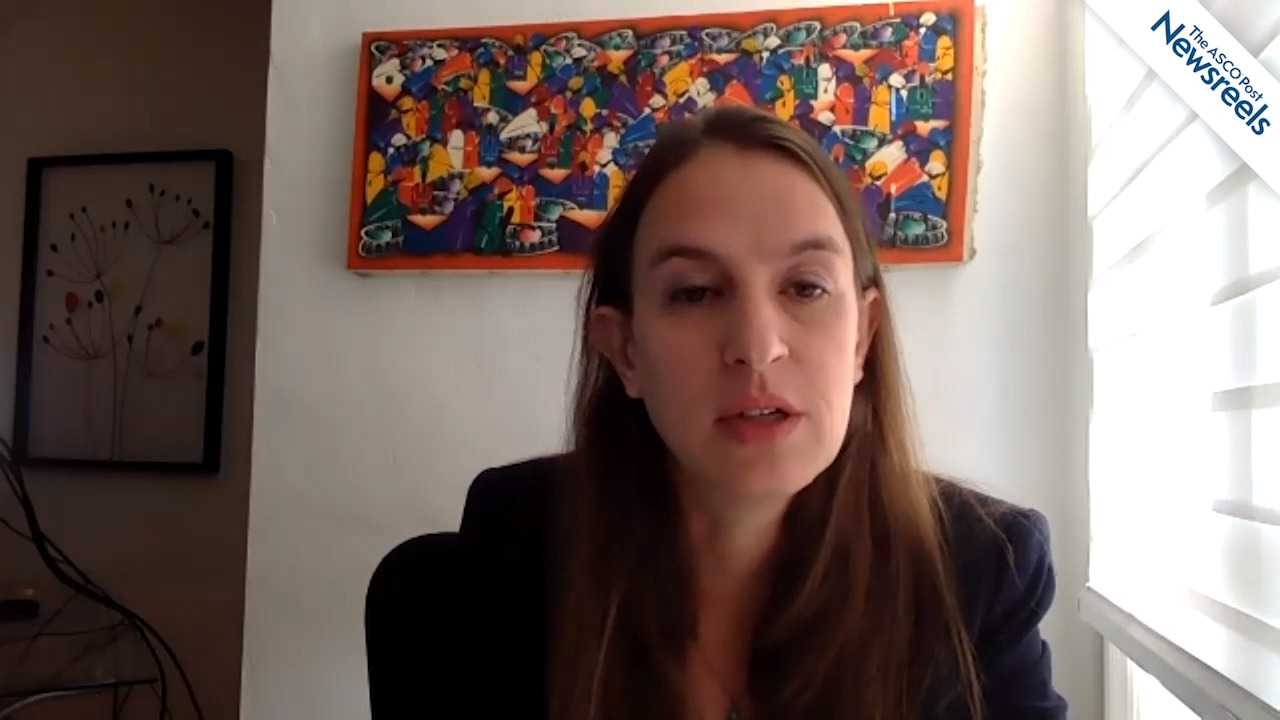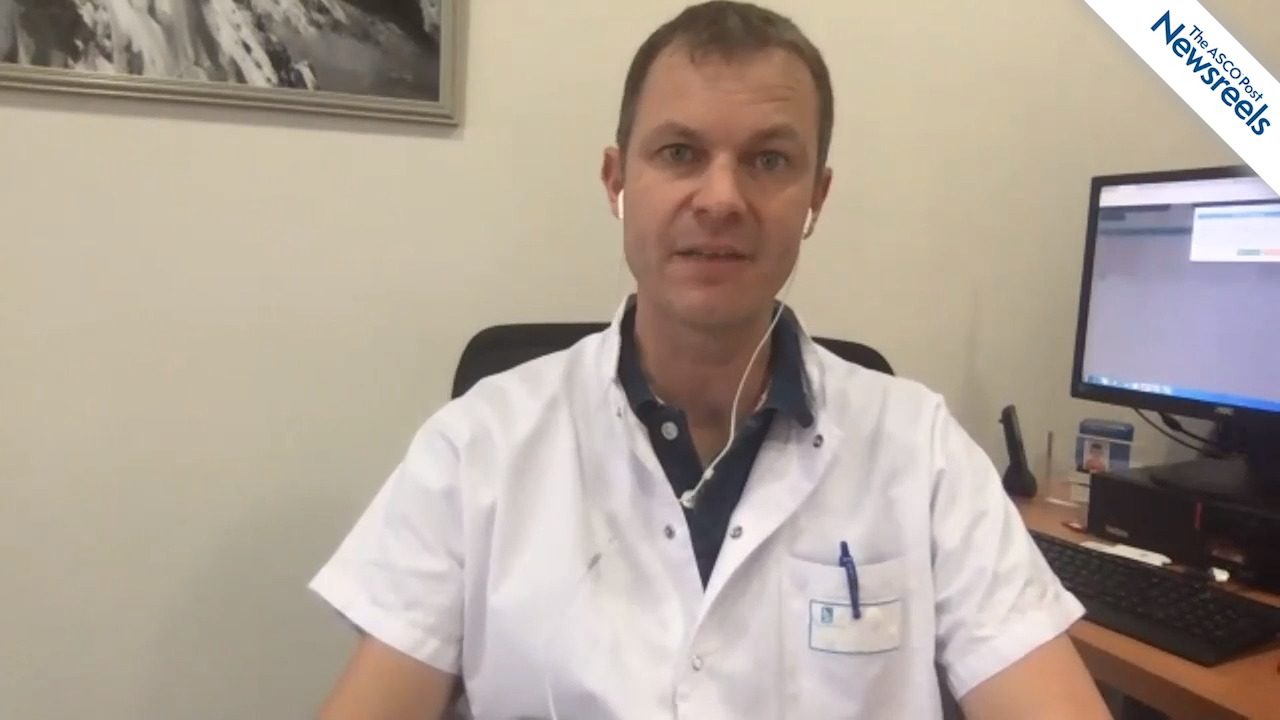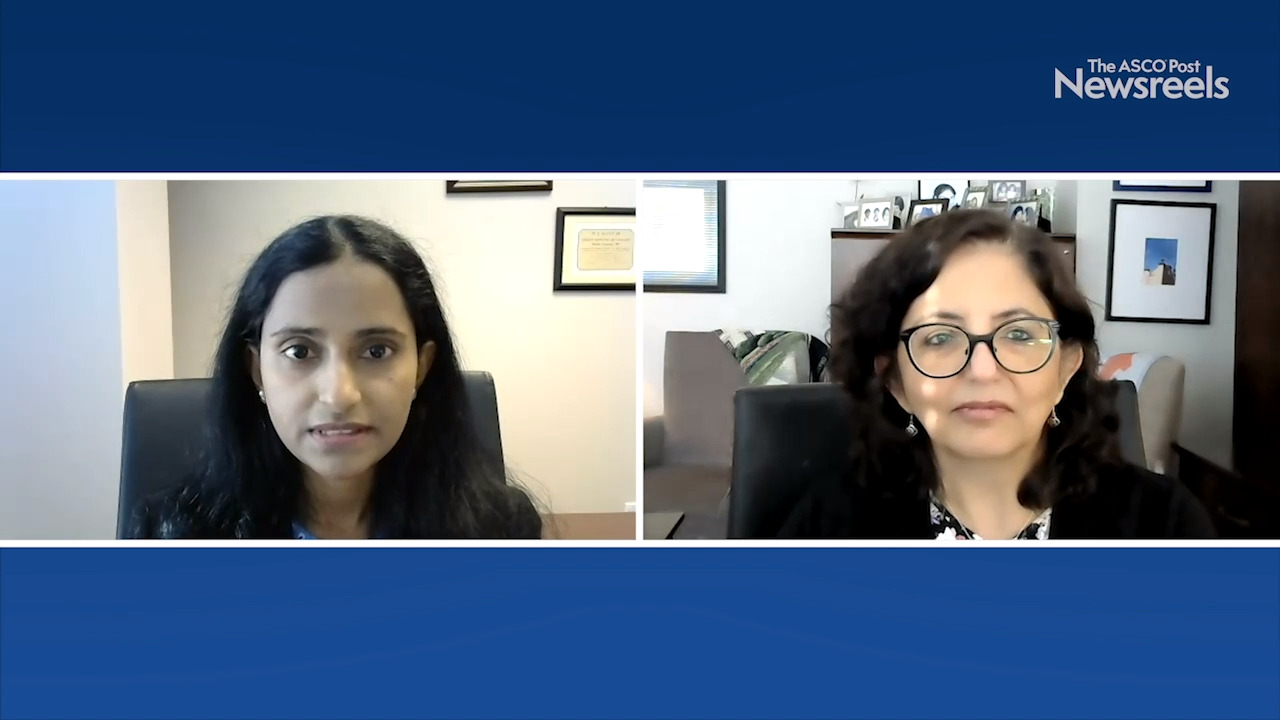Nitin Jain, MD, on B-Cell ALL: Expert Perspective on Key CAR T-Cell Treatment Advances
2020 ASH Annual Meeting & Exposition
Nitin Jain, MD, of The University of Texas MD Anderson Cancer Center, reviews six important abstracts on CAR T-cell treatments for B-cell acute lymphoblastic leukemia (ALL): successful 24-hour manufacture of CAR T-cell therapy; ALLCAR19, a novel fast-off rate therapy; donor-derived CD19-targeted treatment; CAR 2.0 therapy to manage post-transplant relapse; UCART22, allogeneic engineered T cells expressing anti-CD22 chimeric antigen receptor; and inotuzumab ozogamicin in pediatric CD-22–positive disease (Session 614, Abstracts 159-164).
The ASCO Post Staff
Curtis Lachowiez, MD, of The University of Texas MD Anderson Cancer Center, discusses an interim analysis of a phase Ib/II study showing that venetoclax plus chemotherapy represents an effective regimen, particularly in patients with newly diagnosed and relapsed or refractory acute myeloid leukemia. The regimen appears to be an effective bridge to hematopoietic stem cell transplantation (Abstract 332).
The ASCO Post Staff
Farhad Ravandi, MD, of The University of Texas MD Anderson Cancer Center, offers his expert perspective on key treatment studies in acute myeloid leukemia on the use of gilteritinib, consolidation chemotherapy, venetoclax, cladribine, azacitidine, quizartinib, decitabine, and CPX-351 (Session 616 [Abstracts 24- 29]).
The ASCO Post Staff
Lena E. Winestone, MD, MSHP, of the University of California, San Francisco and Benioff Children’s Hospital, reviews different aspects of bias in treatment delivery, including patient selection for clinical trials; racial and ethnic disparities in survival for indolent non-Hodgkin diffuse large B-cell lymphomas; and end-of-life hospitalization of patients with multiple myeloma, as well as outcome disparities (Abstracts 207-212).
The ASCO Post Staff
Emmanuel Bachy, MD, PhD, of the Hospices Civils de Lyon, discusses the final analysis of a phase III study of adding romidepsin to chemotherapy in patients with previously untreated peripheral T-cell lymphoma. Adding romidepsin did not improve progression-free survival and was associated with high rates of adverse events (Abstract 39).
The ASCO Post Staff
Smita Bhatia, MD, MPH, and Radhika Gangaraju, MD, both of the Institute for Cancer Outcomes and Survivorship, University of Alabama at Birmingham, discuss findings that showed survivors of bone marrow transplants are at a 7- to 12-fold higher risk of coronary heart disease than a sibling comparison group. They recommend aggressive management of cardiovascular risk factors to prevent morbidity from heart disease in this patient population (Abstract 73).
